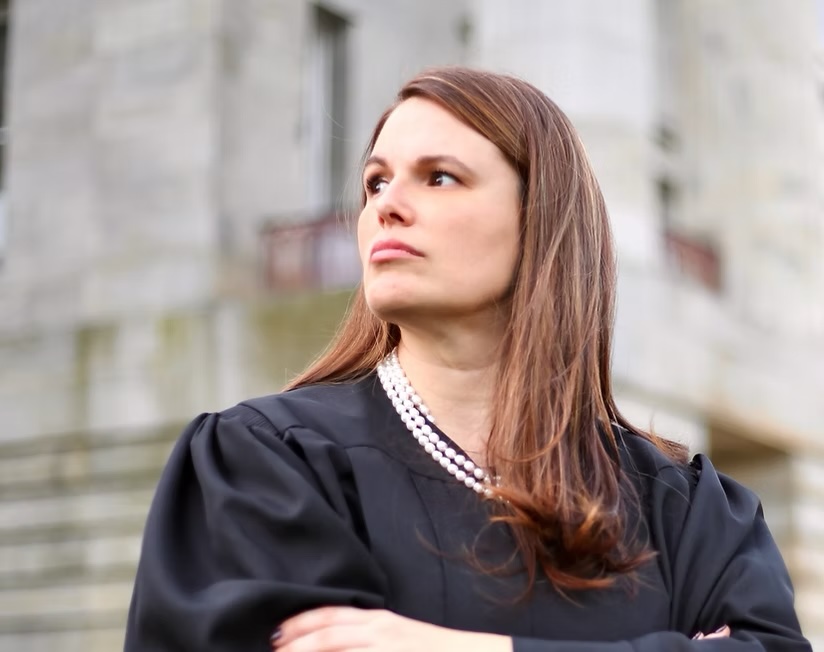
In a court filing Tuesday evening, North Carolina election officials put the number of ballots at risk of being thrown out in the state’s Supreme Court race at a significantly lower mark than the 5,000-plus previously thought to be at issue.
The new numbers appear to put Supreme Court Justice Allison Riggs, a Democrat, in a much stronger position against Judge Jefferson Griffin, a Republican seeking to overturn Riggs’ narrow victory in November — though there could be more legal twists and turns yet to come in the case.
The board said 1,409 ballots from military and overseas voters from a single county — Guilford County — are subject to challenge. Challenges in other counties were invalid, the board said, because Griffin submitted the additional challenges after the state deadline. The board also identified 266 registered overseas voters who allegedly never lived in North Carolina — a separate category of voters who risk disenfranchisement from the state Supreme Court’s ruling.
On Monday, Riggs held a rally in Raleigh where she made a vow to supporters to “fight as long as it takes” to ensure that every vote cast in the November election is counted. The board’s latest filing appears to significantly narrow the number of voters who could be disenfranchised, boosting her chances of prevailing.
After a state Supreme Court ruling last week that drew widespread condemnation, a little over 5,000 ballots cast by military and overseas voters were at risk of being tossed out, unless voters can cure their ballots within 30 days. As part of that order, the court asked the North Carolina State Board of Elections (NCSBE) to provide remedial efforts to help voters cure their ballots — including how many voters are impacted and in which counties.
Riggs won her reelection to the state Supreme Court in November by just 734 votes, but Griffin refused to concede, instead mounting a massive legal challenge to overturn the election by having a little more than 65,000 lawfully cast ballots tossed out.
Though the state Supreme Court affirmed the NCSBE’s decision to count some 60,000 ballots cast by voters with incomplete registrations, it said ballots cast by military and overseas voters who didn’t provide a photo ID when they voted shouldn’t be counted, unless those voters can provide proof of ID within the allotted time.
To cure these ballots, the board intends to have the Guilford County Board of Elections review documentation submitted with these ballots to confirm that the voters didn’t include ID. If the county finds that the voters did submit ID, or an exception form, their votes will not be challenged.
The Supreme Court’s order also greenlit a lower court’s decision to reject up to 266 ballots cast in 55 counties by overseas voters who are registered to vote in North Carolina but never resided in the state. The NCSBE detailed a plan to reach out to these affected voters and give them a chance to confirm their residence status before their ballots are disqualified.
